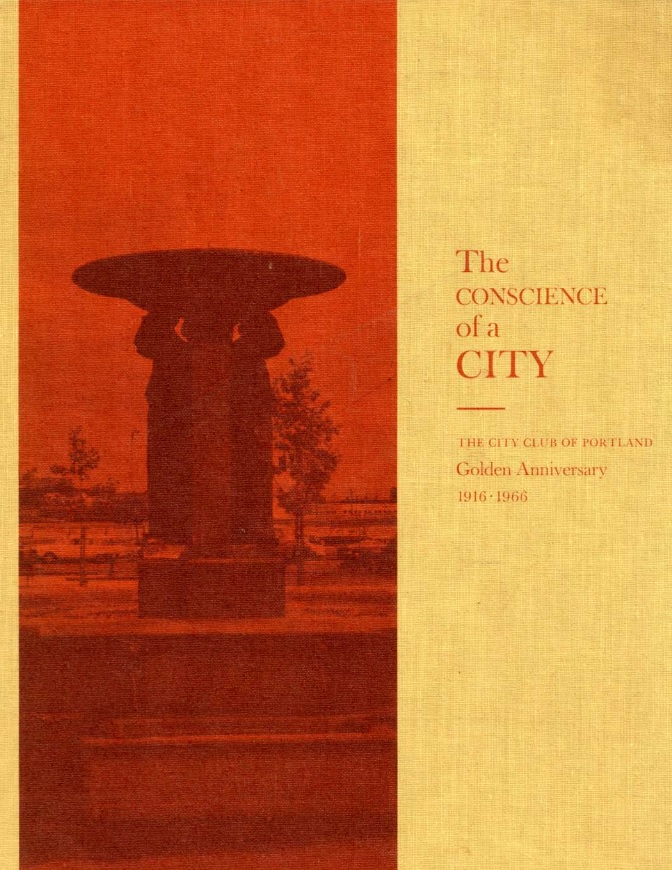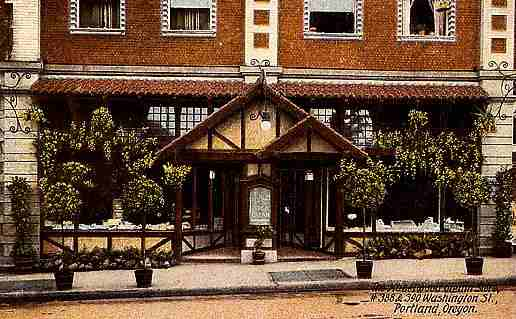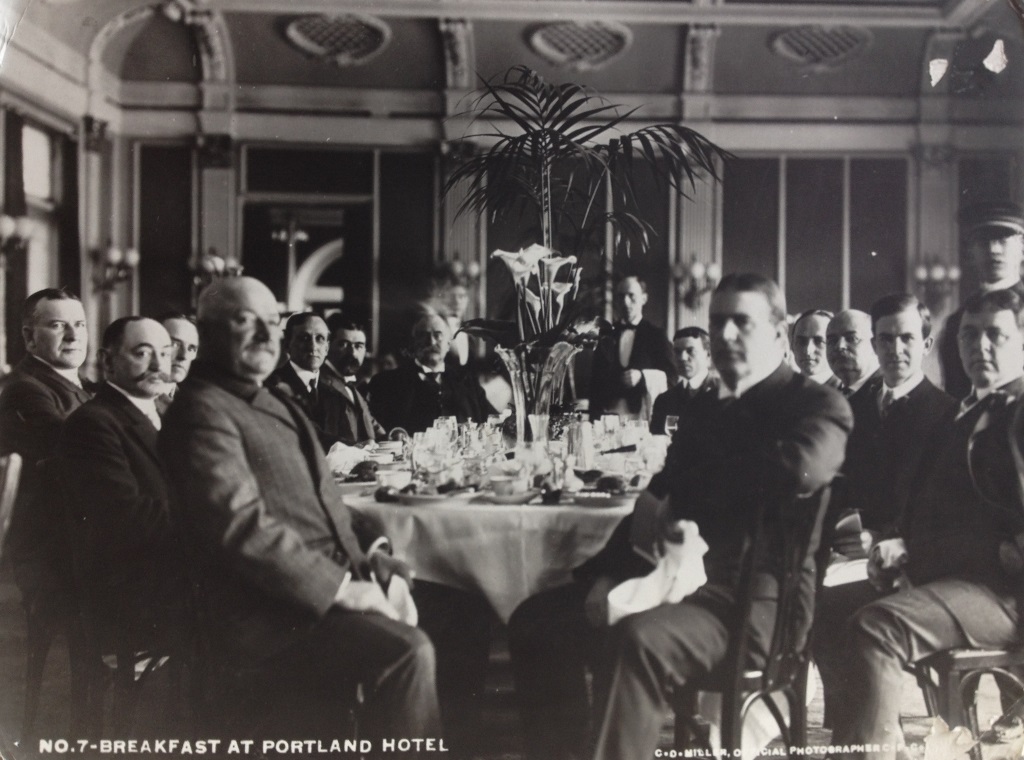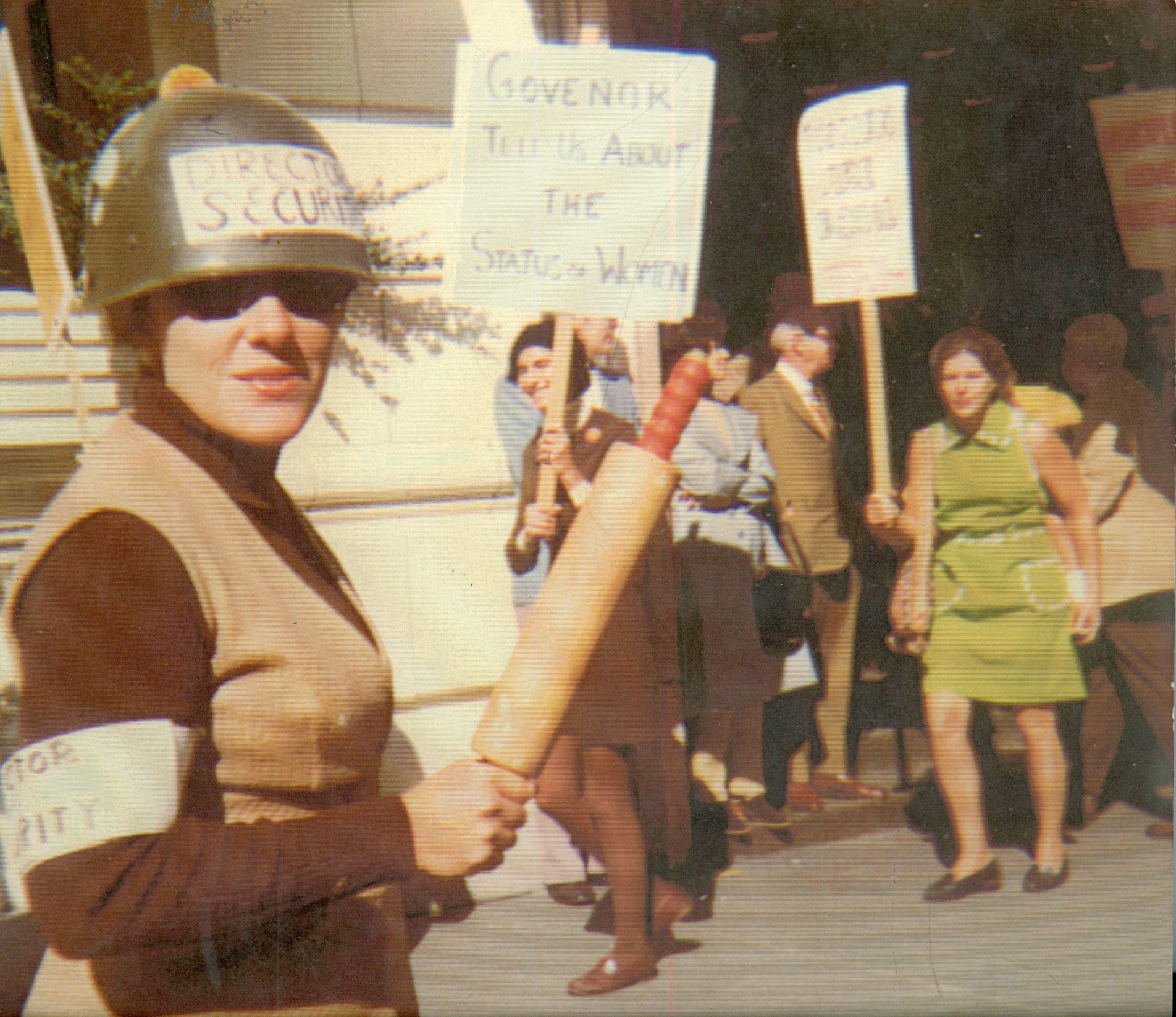The Origins of the City Club of Portland
In the early years of the 20th century, a wave of progressive reform swept the United States. Widespread disenchantment with the entrenched corporate and political elites led to an era marked by Theodore Roosevelt’s “trust-busting,” the struggle for women’s suffrage, prohibition, Upton Sinclair’s The Jungle, and labor activism. In this milieu a new form of organization emerged, the “city club,” with the first of many founded in Cleveland in 1912.
Oregon was at the forefront of many progressive issues-- the initiative & referendum process, direct election of senators, the commission form of city government, protective labor laws, and the minimum wage. And in the autumn of 1916, a small group of men began meeting in the Hazelwood Confectionary & Restaurant in downtown Portland. Well-educated, eager to foster positive change, and dissatisfied with the operation of the city’s public institutions, they felt that existing service organizations gave them no voice.
They decided to form a “distinctive club” along the lines of the new “city clubs” in Eastern cities, which served as community “watchdogs.” The idea of “just another luncheon club” didn’t appeal to them, nor did continuing to meet, eat, and gripe about conditions without doing anything about them.
And so they formed City Club of Portland. “No mossbacks or drones are wanted,” said the attorney who became City Club’s first secretary. City Club was never to deteriorate into a tool of special interests. To guarantee independence, dues paid by individual members would fund City Club. Neither politics nor money were to suppress ideas and ability. Character, intelligence, training, civic-mindedness, and a desire to help the community were wanted and fostered.
The first constitution and bylaws set down seven purposes of City Club:
- To bring together congenial, forward-looking men of divergent beliefs, politics and occupations. (Women were admitted to membership in 1973).
- To assemble a library of information relating to all phases of civic life.
- To study and discuss impartially Portland’s civic problems.
- To work for the improvement of the city’s economic and social conditions.
- To encourage fellowship which would breed ideas and to endeavor intelligently to discharge the obligations of citizenship.
- To work with all high-purposed organizations for a greater Portland.
- Ultimately to have a club house in which hospitality could be extended to all other civic organizations.
Since that time, all of these purposes have been and are being realized. City Club has a rich tradition and a strong reputation for excellence. Many of the community’s key leaders -- now and in the past -- initially honed their skills on City Club projects. City Club continues to provide leadership development, intellectual stimulation, and social interaction with diverse representatives from throughout the community. Membership is open to everyone of high school age and older.
City Club - The Book!

In 1966, Ellis Lucia wrote about City Club of Portland's first 50 years: The Conscience of a City.

1916- Hazelwood Confectionary & Restaurant

Breakfast at Portland Hotel

1970's protesting exclusion of
women from City Club
